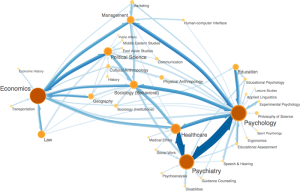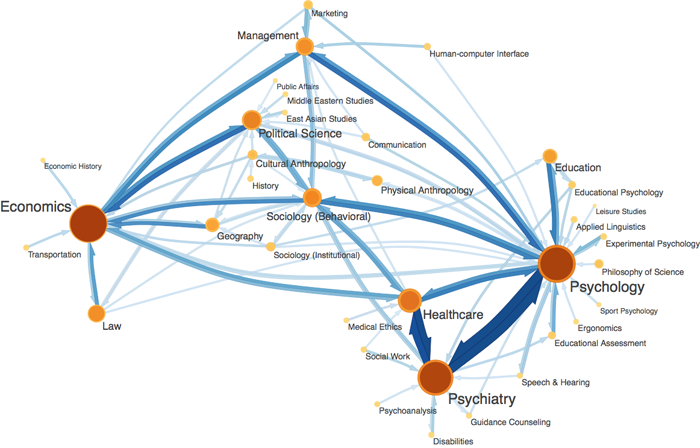Interdisciplinary research (IDR) is hard. But it can be improved. And there are a few ways to improve it that haven’t been tried in earnest yet.
That’s the upshot of the first meeting of the interdisciplinary research group, tentatively toying with the title Synthesis.
In attendance were myself, Tim Dean (philosophy PhD & science journalist); John Wilkins (philosopher of biology); Tibor Molnar (philosopher and engineer); Nigel Cadogan (mathematician); David Kidd (information science; publisher; journalist).

Challenges of IDR
We first discussed IDR broadly and acknowledging that our own forays into IDR have proven to be halting affairs for manifold reasons. At the top of the list is that academia simply isn’t built to handle ideas that cross more than a couple of disciplinary boundaries.
The structure of contemporary academia is such that each discipline is neatly siloed, hammering away at its own problems and happily outputting to its specialist journals. This approach is safe, the institutions know where to put people (biologists go in the biosciences building), the funding bodies know how to fund it (biologists get money for biology), the researchers know where to publish (biology journals).
 However, step outside the bounds of this machine and things start to break down. If a particular question is best answered by individuals from three or more different departments, the academy just puts it in the too hard basket. There are few or no facilities to encourage interaction between disciplines. Communication is difficult. Funding bodies don’t know how to judge the merit of the research. And journals shy away from any content that isn’t explicitly within their remit.
However, step outside the bounds of this machine and things start to break down. If a particular question is best answered by individuals from three or more different departments, the academy just puts it in the too hard basket. There are few or no facilities to encourage interaction between disciplines. Communication is difficult. Funding bodies don’t know how to judge the merit of the research. And journals shy away from any content that isn’t explicitly within their remit.
(more…)

 However, step outside the bounds of this machine and things start to break down. If a particular question is best answered by individuals from three or more different departments, the academy just puts it in the too hard basket. There are few or no facilities to encourage interaction between disciplines. Communication is difficult. Funding bodies don’t know how to judge the merit of the research. And journals shy away from any content that isn’t explicitly within their remit.
However, step outside the bounds of this machine and things start to break down. If a particular question is best answered by individuals from three or more different departments, the academy just puts it in the too hard basket. There are few or no facilities to encourage interaction between disciplines. Communication is difficult. Funding bodies don’t know how to judge the merit of the research. And journals shy away from any content that isn’t explicitly within their remit.